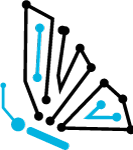Report on Faces of Development STEAM Camp

The objective of the camp was to provide young people with skill sets using Science, Technology, Engineering, Art, and Math (STEAM), to improve academic performance and broaden options for career planning and gainful employment using community resources to establish teaching and learning models.
The Foundation examined alternatives to the development framework of the community in 2019. In that year FoD staged a youth symposium and a youth summer camp. The youth Symposium consisted of a series of presentations on the various aspects for creating sustainable and dignified jobs in the community linked to the community economic drivers and resources. The main themes were: The green economy; The blue economy; sports; legal aspects of creating new jobs and an examination of organizational structures that would help foster sustainable job creation. The introduction of a STEAM approach to enhancing academic performance and support for innovation and job creation, represents the next stage to shaping an effective sustainable development model for the community.
The first year of the camp was intended to expose the camp assistants and the young people to problem solving, using reasoning and proof. The camp assistants were volunteers from the communities. Further, the camp aimed to have children enjoy science and have fun while seeing what science can do. Ultimately the camp was seen as a vehicle for sustainable community development. Ultimately the camp would enable the participants to acquire skills while engaging in STEAM content, connected to community resources, improving their academic performance, and broadening their options for career planning and gainful employment.
Report on Faces of Development STEAM Camp for At Risk and Poor Kids 9-14 in Dennery, Saint Lucia : FullReport_FoD_STEAM_Camp_2022v2clning.pdf
How do you use it?
To Indicate ways to Empower poor and at risk Children.
Why do you like it?
The first year of the camp was successful and has shown that these children are a spark of hope, who can be successful in their career path and achieve a productive future. This can only be successfully harnessed if they are mentored, coached, and participate in incubation projects. The camp had some shortcomings, but overall, it fulfilled the expectations of the camp organizers.
Target Audience
- Student Ages 11-13
- Educators Teaching Ages 11-13
- Parents with Children Ages 11-13
Resource Creator: Cornelius Edmund


















